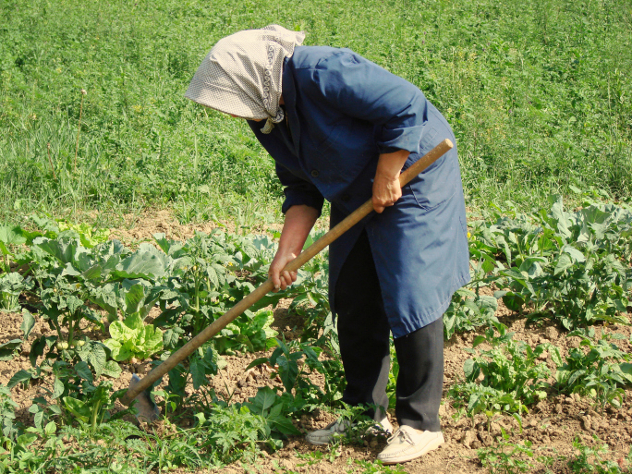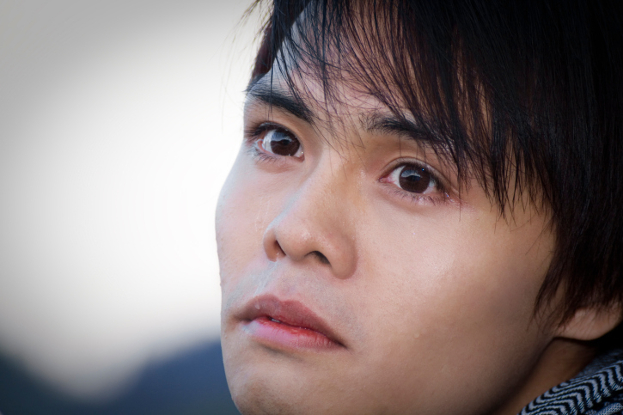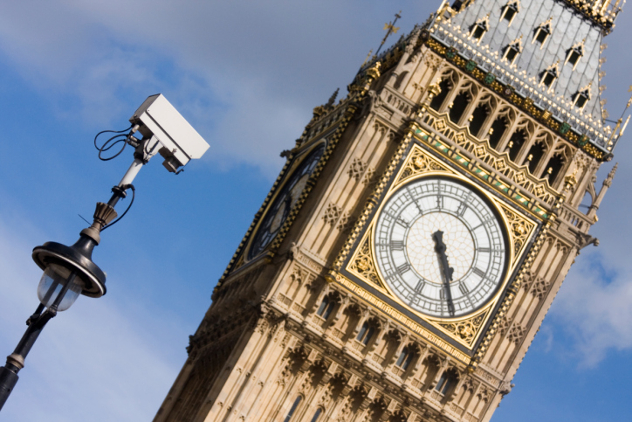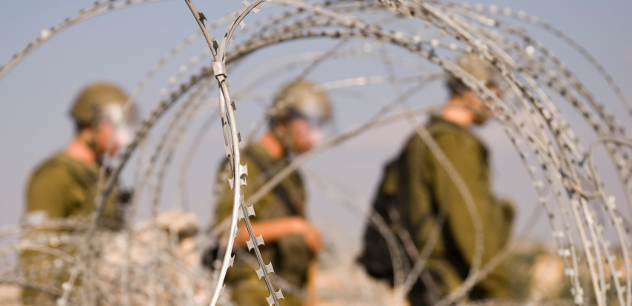 Miscellaneous
Miscellaneous  Miscellaneous
Miscellaneous  Politics
Politics 10 Lesser-Known Far-Right Groups of the 21st Century
 History
History Ten Revealing Facts about Daily Domestic Life in the Old West
 Weird Stuff
Weird Stuff 10 Everyday Products Surprisingly Made by Inmates
 Movies and TV
Movies and TV 10 Actors Dragged out of Retirement for One Key Role
 Creepy
Creepy 10 Lesser-Known Shapeshifter Legends from Around the World
 Animals
Animals 10 Amazing Animal Tales from the Ancient World
 Gaming
Gaming 10 Game Characters Everyone Hated Playing
 Books
Books 10 Famous Writers Who Were Hypocritical
 Humans
Humans 10 of the World’s Toughest Puzzles Solved in Record Time
 Miscellaneous
Miscellaneous 10 Ironic News Stories Straight out of an Alanis Morissette Song
 Politics
Politics 10 Lesser-Known Far-Right Groups of the 21st Century
 History
History Ten Revealing Facts about Daily Domestic Life in the Old West
Who's Behind Listverse?

Jamie Frater
Head Editor
Jamie founded Listverse due to an insatiable desire to share fascinating, obscure, and bizarre facts. He has been a guest speaker on numerous national radio and television stations and is a five time published author.
More About Us Weird Stuff
Weird Stuff 10 Everyday Products Surprisingly Made by Inmates
 Movies and TV
Movies and TV 10 Actors Dragged out of Retirement for One Key Role
 Creepy
Creepy 10 Lesser-Known Shapeshifter Legends from Around the World
 Animals
Animals 10 Amazing Animal Tales from the Ancient World
 Gaming
Gaming 10 Game Characters Everyone Hated Playing
 Books
Books 10 Famous Writers Who Were Hypocritical
 Humans
Humans 10 of the World’s Toughest Puzzles Solved in Record Time
10 Advanced Countries With Extremely Primitive Problems
We’ve all heard the expression “first world problems.” It’s a Twitter cliche, a disdainful sniff directed at those who get all worked up because their caramel latte wasn’t foamy enough (or whatever). And while it’s true that most advanced nations have problems that would make your average failing state weep with envy, there are some areas where even us rich Westerners could use a helping hand.
10 Russia Is A Slave-Owner’s Paradise

Slavery is one of those things we associate with the distant past and dirt-poor countries on the fringes of civilization. We know it’s bad and we’re instinctively against it, but it couldn’t happen in any modern, wealthy nation, right?
Try telling that to Russia. In a recent report, the US State Department ranked the country as one of the worst for slavery in the entire world. According to advocacy group Humanity United, there are currently around one million Russians being kept in forced-labor conditions, including some 50,000 children working involuntarily as prostitutes. And that’s before we get on to the abuse of migrant workers.
In their report, the State Department revealed that the 2014 Winter Olympics venues are being built on the back of what we’ll non-euphemistically call “slave labor.” Workers have their passports confiscated, are forced to work 12-hour days with only one day off per month, and are sometimes housed 200 people to a single four-bedroom house. Yet the authorities do almost nothing to curb this abuse and arrests are extremely rare. So yeah, if you dream of being a real-life Calvin Candie, head to Russia.
9 Greece Is More Corrupt Than Actual Dictatorships

It probably isn’t surprising to learn that Greece is somewhat prone to corruption. After all, southern Europe is almost-famous for its good-natured bribery and faint whiff of sex scandals—not everywhere can be Scandinavia, right? But Greek corruption goes beyond mere posturing and into “failed state” territory.
When Transparency International released their 2012 Corruption Index, Greece was ranked as the 94th most corrupt country on Earth. Admittedly, that still places it light years ahead of, say, Somalia or North Korea, but it also places it lower than Saudi Arabia, Jordan, Oman, Qatar, and Cuba.
In case you’re not up on your geography that means this EU member state is officially more corrupt than several actual dictatorships. Not only that, it’s also more corrupt than several third world countries (such as Liberia, Swaziland, and Benin) where nearly the entire population lives below the poverty line and they still have stuff like absolute monarchs. The only comfort Greeks can take from all this is that they still did better than Russia, which came an appalling 133rd.
8 Israel Fails On Press Freedoms

In most areas, Israel fulfills the criteria of a modern, functioning democracy. However, according to Reporters Without Borders, that commitment to openness and transparency doesn’t extend to press freedoms. Put simply, Israel has some of the most restricted journalists in the world.
In their 2013 global rankings, the group placed Israel at 112th: behind countries like Guinea-Bissau, which operates military censorship on the media; the Maldives, where journalists have been attacked by government forces; and Mali, where the military overthrew the State broadcaster and arbitrarily tortured journalists. Even drug war-buffeted Guatemala fared better, ranking 95th, despite the frequent murders that afflict press work there. In other words, Israel was up against some pretty stiff competition and yet still managed to stomp on press freedoms to a degree even impoverished military juntas could only dream of.
7 Vermont Has The GDP Of Yemen

Vermont is a pleasant, wooded State to the north of the USA where nothing much interesting ever happens. Yemen is an unstable third world country, crippled by debt, prone to terrorism, failing to exploit its natural resources, and with nearly 50 percent of its population living in poverty. On the surface, the two have nothing in common. But there is one area where Vermont and Yemen are almost identical: their GDP.
Now, obviously this is a slightly unfair comparison, as Vermont is a single state while Yemen is an entire country. But the fact remains that if every US state were to simultaneously secede, Vermont would be the absolute poorest of the resulting 50 countries. Sudan, Uzbekistan and Iraq would all be wealthier, as would Morocco, Algeria, and Belarus. What we’re trying to say is that Vermont better pray Rick Perry doesn’t get his way about dissolving the Union.
6 East Glasgow Has A Life Expectancy Lower Than Some War Zones

Thanks to decades of rampant economic growth, medical advances and improved equality, life expectancy has surged in the West. If you’re male and live in the UK for example, you can expect to live a good 78.5 years—compared to the 56 an impoverished Ethiopian might get. Unless, that is, you live in East Glasgow where you’ll be lucky to scrape 54.
No joke. The Glasgow neighbourhood of Calton has some of the lowest male life expectancy not just among developed nations, but in the entire world. People there live in soul-crushing poverty, with rates of alcohol and drug addiction and homelessness some of the highest in the Western world. The average male life expectancy is 53.9 years, lower than Afghanistan (59), The Ivory Coast (55), Haiti (61), or even Iraq (65). Even male children born into the nightmare of Somalia will only live an average of 4 years less than their Glaswegian counterparts—and these are kids who can expect to spend their lives being bombed, shot at and nearly-exploded.
The area is so messed up that young people from developing countries like Indonesia actually volunteer there in the hopes of making a meaningful difference. In short, this tiny corner of the super-prosperous UK may have a claim on being one of the most-deprived in the entire world.
5 South Korea’s Unbelievable Suicide Rate

It’s fairly obvious that poverty causes depression. If you disagree, feel free to dump your possessions and try living on the streets for a year, we’ll wait for your report. So you might expect those living in crippling poverty in developing nations to be more prone to suicide than their affluent Western counterparts. But that’s not the case. If anything, there are some richer countries where suicide appears to be almost endemic.
Take Japan: Japan is one of the richest and most-equal societies on earth, yet it has a suicide rate higher than Zimbabwe, Venezuela, Nicaragua, Haiti, Jamaica, and Guatemala combined. But even this has nothing on South Korea. At nearly 40 men in every 100,000, South Korea simply has one of the highest suicide rates on Earth—comparable to developing nations like Kazakhstan, Ukraine and Sri Lanka. In fact, only Hungary and Russia are both similarly affluent and more prone to suicide, but even then Hungary’s GDP is a fraction of South Korea’s. Final proof, if needed, that money objectively can’t buy happiness.
4 Ireland’s Barbaric Abortion Laws

What do Haiti, Yemen, Sudan, Somalia, Iran, Afghanistan, and Ireland have in common? The answer is that until only a couple of months ago, they all completely outlawed abortion—even when a woman’s life was at stake.
In 2012 a pregnant Indian woman living in Ireland suffered life-threatening complications. Rushed to a hospital, she was told there was no chance of her baby surviving. There was also very little chance of her surviving, unless doctors forced a termination. They refused. In 2012, abortion was still so illegal in Ireland that it couldn’t be done, even to save the mother’s life, even when the baby was guaranteed to die anyway.
In the aftermath of her death, Ireland finally pushed a bill through that would allow termination—but only if the mother’s life was at risk. This places Ireland firmly behind every single other developed nation on abortion rights. Even Algeria and Pakistan will allow terminations to save the mother from sickness or injury, as will Ethiopia, Costa Rica, and Zimbabwe. To give you some perspective, this is one area where even North Korea outperforms Ireland—something no country should ever be proud of.
3 The USA Has The Gun Homicide Rate Of A Failed State

Without getting into the politics of gun control, we can probably all agree that the US has its fair share of shootings. But if you were to rank it on gun homicides against the rest of the world, where do you think it would come? Near other, similar Western states maybe?
Try right at the very bottom. With a gun homicide rate of 2.97 for every 100,000 people, no other developed nation comes close. The only other Western state within spitting distance is Lichtenstein, with a gun murder rate of 2.95, but Lichtenstein’s tiny population means this actually works out at a single shooting per year. The closest after that is Switzerland with 0.77, i.e. almost a quarter of the USA’s.
This means the US gun homicide rate is worse than in the West Bank and Gaza, worse than in Uganda or Cambodia, worse even than in the shambles that is the D.R. Congo. It’s only thanks to the drug cartels of Latin America and the endemic violence of South Africa and Jamaica that the US isn’t even further down the list. Now there’s a depressing thought.
2 The UK Is An Endemic Surveillance Society

It might not be a third-world problem, strictly speaking, but we do tend to associate endemic state surveillance with developing nations ruled by brutal ideologues. No way these guys could be as bad as, say, China.
Well, think again. A few years back, Privacy International conducted a global survey into government surveillance and ranked each country accordingly. They took into account stuff like CCTV prevalence, the monitoring of borders, and internet freedoms, and came to the conclusion that the UK is one of the worst “spy states” in the world. Only the US, China and Russia fared equally badly, with even semi-authoritarian regimes and corrupt states doing noticeably better. But this was years ago, and the US fared equally badly, so why is this section specifically about the UK? Well, let’s take a look at the recent NSA scandal. In the US, the scandal was followed by an open debate and congress taking Obama to task for his dictatorial tendencies.
In the UK, the paper that broke the story is being investigated under anti-terrorism legislation. Earlier, government agents turned up at the newspaper’s offices and smashed up their laptops with hammers, claiming they had sensitive information on them. They detained the reporting journalist’s husband, and the rest of the media has been officially warned not to report on the leaks, lest they make “inadvertent public disclosure of information that would compromise UK military and intelligence operations and methods.” We’re beginning to think the UK government mistakenly filed George Orwell’s 1984 under “good advice.”
1 Israel’s Human Rights Problem

Earlier this year, Relief Web—a part of the United Nations’ Office for Humanitarian Affairs—released their yearly Human Rights Risk Index. The index does exactly what the name suggests: ranking countries by the risk they pose to human rights. The aim is to highlight countries with an “extreme” risk—such as Iran, Iraq, Sudan, or Somalia—but it also highlights those where human rights are at “high risk.” Countries such as Algeria, Malaysia, Kazakhstan, dictator-ruled Cuba, Turkmenistan . . . and Israel.
According to the report, the Middle East’s most-developed democracy has a human rights problem comparable to countries that have barely shuffled out of the Dark Ages. It ranked lower than any other first world nation, with only semi-first world Russia doing more to systematically stomp all over human dignity. In fact, the only European countries to come close (Israel being an EU “associate state”) were the Ukraine and Belarus, an archaic Soviet-style dictatorship where political dissidents are frequently tortured. Again, this is according to a United Nations body specifically set up to monitor human rights abuses, not some angry leftie student raging over his tofu. It seems that economic development and respect for human rights don’t always go hand-in-hand.








